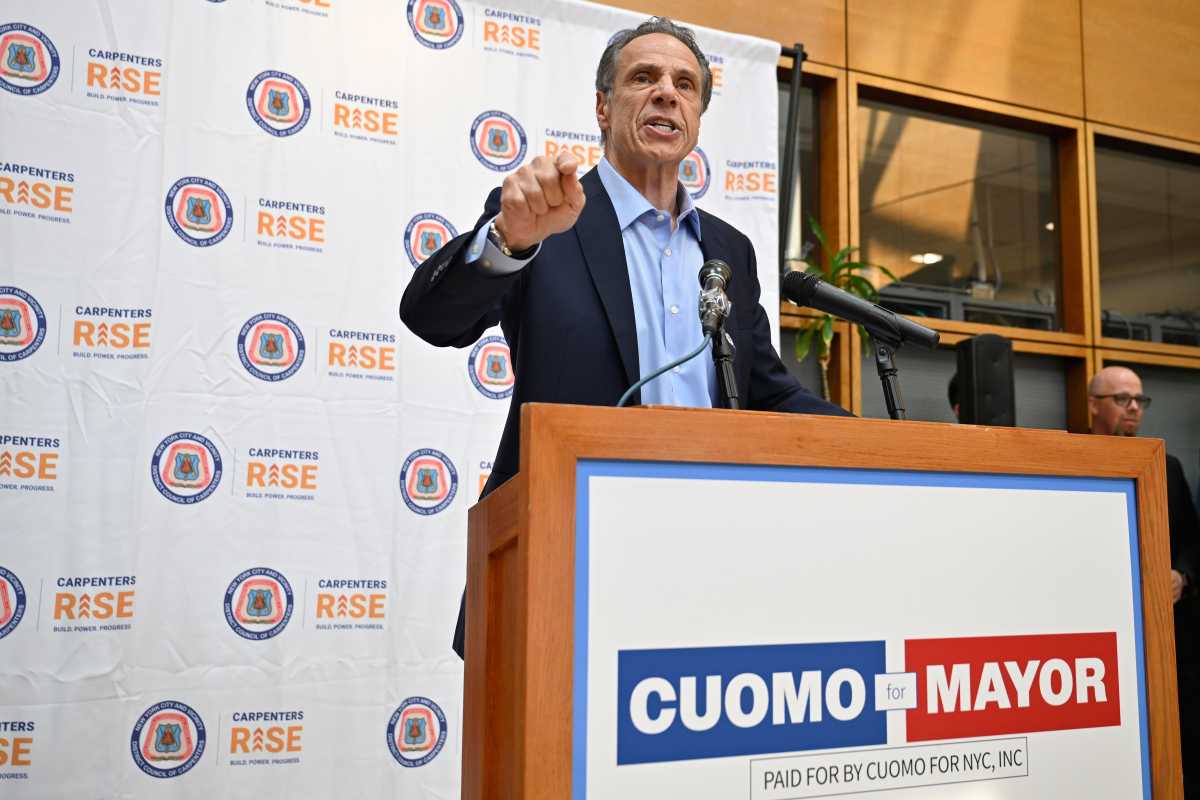To the editor,
I am writing to voice my support for Superfund designation of the Gowanus Canal (“Showdown on the canal,” April 30). According to the Environmental Protection Agency, there is nothing in Superfund designation that would stop the city from beginning to address the sewer overflow issue. So why is the city saying that it can not? Lies.
And what’s this about developers backing out if the area is designated a Superfund site? As a homeowner who stands to gain plenty with redevelopment, I say let them leave. There are plenty of local builders who would benefit from having the canal clean. I much favor small-scale, natural developments that respond directly to the neighborhood’s needs.Michael King, Gowanus
Weed whacker
To the editor,
Cadman Plaza Park in Brooklyn Heights uses a small tank truck each morning to spray the artificial turf with weed killer.
The worker wears a mask to keep out the fumes as she coats poison on the perimeter of the ball field using a hose.
Of course, I tell her to stop. But I am not there all the time.
The Park Department should use the same tools most gardeners do to extract weeds: sweat and muscle, spade and fork.
Justine Swartz,
Brooklyn Heights
Eat this!
To the editor,
Unfortunately, the annual Nathan’s Hot Dog Eating Contest is coming up again (“Man eat dog,” Editors’ picks, June 26). It is my hope that someday eating contests like this might be put to an end.
Watching eating contests are a little like witnessing a train wreck. You can hardly tear your eyes away from the disturbing image of contestants stuffing 50-plus hot dogs in their faces in 10 minutes.
It’s interesting that a behavior like mindless overeating, which most people work years to overcome and contributes to one of the largest health concerns in America, is embraced, glorified and rewarded in these contests.
I believe that learning to manage your eating habits is one of the most important life skills you can have. It’s not easy. We have to fight each day to do it well in such a warped eating world that televises people bingeing on food.
Susan Albers, Ohio
Elephantitus
To the editor,
Thurston Dooley calls elephants “slow, smell[y] and politically compromised” (“ ‘Greatest show’ misses the mark,” June 26).
They are not so slow when they aren’t being chained up by Ringling Brothers for profit. In the wild, they travel hundreds of miles a day.
Wayne Johnson,
Brooklyn Heights
Wrong on lane
To the editor,
Had the city used The Brooklyn Paper’s restrictive criteria for installing bike lanes, New York wouldn’t have a bike lane network at all (“A bike lane solution,” editorial, June 19). What is most stunning about it is the omission of the most-important rationale for a bike lane: the presence of cyclists.
Fifth Avenue carries a phenomenal amount of bicycle traffic, much of which is destined for businesses and institutions on Fifth Avenue itself. These are riders who will be on Fifth Avenue, bike lane or not, and they deserve the safety of a dedicated space.
Many Fifth Avenue merchants have already voiced their support for the safety of their bicycle-borne customers.
And a little digging in the archives would have revealed that the Fifth Avenue bike lane was installed by the city at the request of 103 Fifth Avenue businesses, something your editorial, and the handful of area bike lane opponents, fail to mention.Wiley Norvell, Greenpoint
The writer is the spokesman for Transportation Alternatives.
Hooked on it
To the editor,
A few articles in past editions of The Brooklyn Paper brushed upon fear of prostitution.
In an article about an automatic public toilet (“Hold it,” March 17), you wrote that “after 15 minutes, its door opens to discourage vagrants and deviants from camping out or prostitutes from plying their trade.”
Two months later, the story (“Name this tune? Karaoke bar says board is clueless,” June 21), about concerns of prostitution in a karaoke bar, quoted a resident saying, “We don’t need no hookers in here!”
I feel this is an unnecessary prejudice toward sex workers. If prostitution were regulated, people would not even think about it occurring in such places because there would be designated areas for that.
There are other benefits to regulating prostitution, such as the reduction of trafficking in sex workers, slowing the spread of disease, and boosts in both employment and the economy at large.
Victoria Booth, Bay Ridge
























